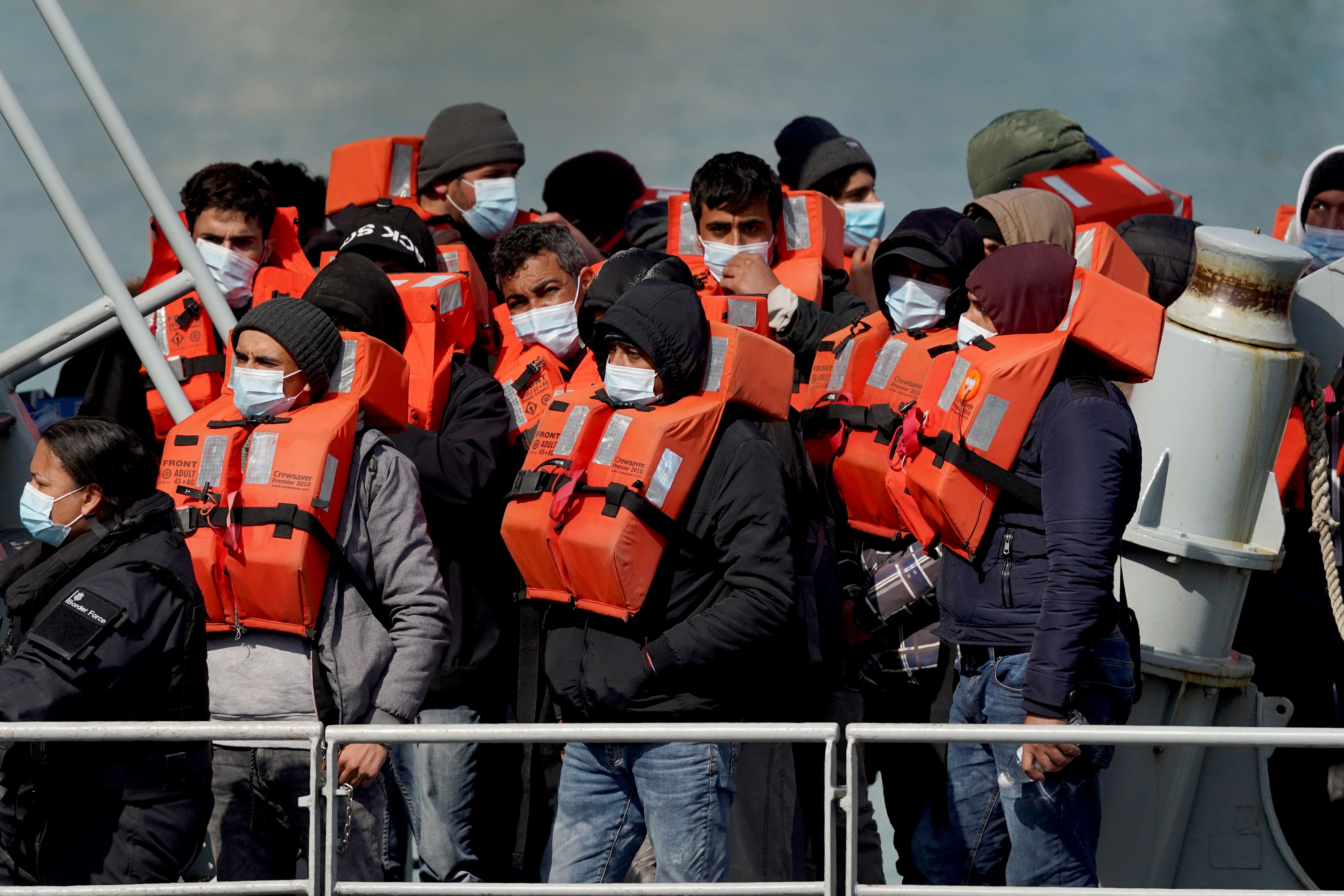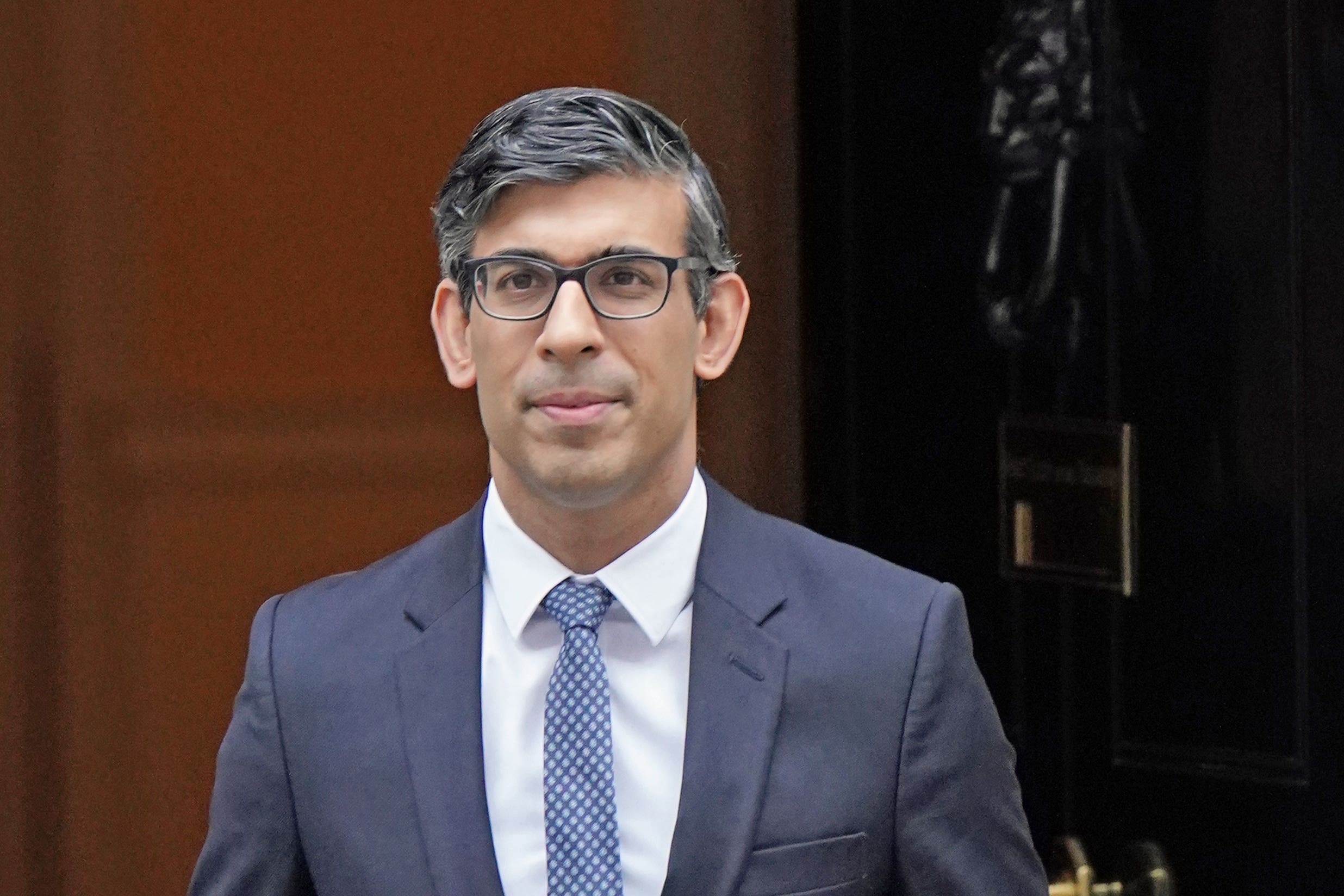Sunak small boats plan will ‘push boundaries of international law’, says Braverman
Home secretary to be placed under new legal duty to deport people coming across Channel
Your support helps us to tell the story
From reproductive rights to climate change to Big Tech, The Independent is on the ground when the story is developing. Whether it's investigating the financials of Elon Musk's pro-Trump PAC or producing our latest documentary, 'The A Word', which shines a light on the American women fighting for reproductive rights, we know how important it is to parse out the facts from the messaging.
At such a critical moment in US history, we need reporters on the ground. Your donation allows us to keep sending journalists to speak to both sides of the story.
The Independent is trusted by Americans across the entire political spectrum. And unlike many other quality news outlets, we choose not to lock Americans out of our reporting and analysis with paywalls. We believe quality journalism should be available to everyone, paid for by those who can afford it.
Your support makes all the difference.Rishi Sunak plan to stop small boats crossings in the English Channel will “push the boundaries” of international law, home secretary Suella Braverman has claimed.
Mr Sunak and Ms Braverman will unveil their plans to detain, remove and ban asylum seekers from re-entry if they arrive in the UK through unauthorised routes on Tuesday.
The home secretary will be placed under a new legal duty to deport people arriving across the Channel, taking precedence over human rights concerns, according to reports.
The ban on asylum claims for those arriving in small boat will make exceptions only for unaccompanied children and those with “grave” illnesses, The Times reported.
The government also has plans to put an annual cap on refugee numbers. And the Home Office is reportedly ready to buy former military bases in Lincolnshire and Essex to detain thousands of migrants.
But critics have warned the proposals are “immoral and unworkable”. There are concerns about legal challenges and lack of detention facilities, and the prospect of leaving thousands in limbo by banning them from ever claiming British citizenship.
Former cabinet minister David Davis was among the senior Tories telling The Independent they have “doubts” that the new law will succeed in fulfilling Mr Sunak’s promise to “stop the boats”.
Mr Davis said: “Leaving aside any moral concerns, it’s got a lot of real practical problems. If we’re got to lock these people up, then where do they go? Rwanda might take a few thousand – that’s about one month’s arrivals.”
He added: “It’s going to run into trouble with the courts. I’m pretty sure it will be a breach of the European Convention on Human Rights, which we helped draw up. It was explicit that you don’t decide anything on the basis of how people arrive.”
Former justice secretary Robert Buckland – who told The Independent the issue would not be solved unless Mr Sunak can get a returns deal withFrance – urged the government to open up more legal asylum routes.
“We’ve had a lot of overpromising and underdelivering,” Mr Buckland told Sky News on Tuesday. “It’s essential to do a [returns] deal with France, and indeed other European countries, if we can.”
Ex-Labour home secretary Jack Straw said the small boats plan would turn the UK into a “pariah amongst western European states” – claiming Mr Sunak would be “embarrassed” by the bill’s failure to work.
Despite plans such as forcibly removing asylum seekers to Rwanda being mired in legal challenges, ministers are expected to push the limits of the European Convention on Human Rights (ECHR).

Writing in The Telegraph, Ms Braverman said: “Myself and the prime minister have been working tirelessly to ensure we have a bill that works – we’ve pushed the boundaries of international law to solve this crisis.”
A duty will be placed on the home secretary to remove “as soon as reasonably practicable” anyone who arrives on a small boat, either to Rwanda or a “safe third country”. Arrivals will be prevented from claiming asylum while in the UK.
But government sources told The Times they could not say it was “definitely compliant” with international law. No 10 also conceded legal challenges were likely. “We recognise there will likely be challenges in many forms to this sort of legislation,” said the PM’s spokesman on Monday.
Ms Braverman is expected to admit the legislation may not be compliant with the ECHR when she sets out the bill in the Commons at 12.30pm.
Reports suggest the government will include a Section 19B statement to acknowledge they risk of breaking the ECHR in a bid to “disapply” a key part of the UK Human Rights Act.
The PM is set to lead a press conference on the plan later today. Mr Sunak spoke to Rwanda’s president Paul Kagame before unveiling his plans, and pledged to continue working with him to ensure their stalled project works.
The government has paid more than £140m to Rwanda, but no flights forcibly carrying migrants to the capital of Kigali have taken off because of legal challenges.
The PM will meet France’s President Emmanuel Macron on Friday to discuss further cooperation that will be required to reduce boat crossings.
Mr Sunak claimed that his new bill – which is key to one of his five promises for his premiership – will “take back control of our borders, once and for all”.

Mr Sunak admitted voters “have heard promises before” without seeing results. Writing in The Sun, he said: “This new law will send a clear signal that if you come to this country illegally, you will be swiftly removed.”
The Immigration Services Union representing border staff said the plans are “quite confusing” and do not seem “possible” without the Rwanda policy functioning.
Lucy Moreton, the union’s professional officer, also suggested on BBC Radio 4’s Today programme that smuggling gangs will tell people “quick, cross now before anything changes”, risking an increase in the number of crossings.
But the Home Office wants to “backdate” the legislation so it applies retrospectively and allows people crossing the Channel now to be deported later, according to The Guardian.
Labour leader Sir Keir Starmer raised doubts about the legality and workability of the plans. Asked if the plan was legally feasible, the Labour leader said: “I don’t know that it is, and I think we’ve got to be very careful with international law here.”
Refugee Council chief executive Enver Solomon said the plans “shatter the UK’s long-standing commitment under the UN Convention to give people a fair hearing regardless of the path they have taken … It’s unworkable, costly and won’t stop the boats.”





Join our commenting forum
Join thought-provoking conversations, follow other Independent readers and see their replies
Comments